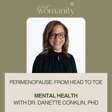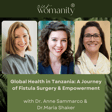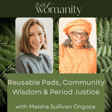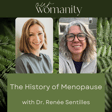
1. Healing & Empowering Women in Kenya with Habiba Corodhia Mohamed
With the changes unfolding in the U.S. under the new administration, I wanted to launch this season of Our Womanity with powerful stories of women uplifting women around the world.
In this episode, I proudly welcome Habiba Corodhia Mohamed, Founder of WADADIA.
The journey of WADADIA began with a defining moment in Habiba C. Mohamed’s life. Initially dedicated to veterinary medicine, her path took a transformative turn during a routine visit to a farmer’s home. While searching for the farmer, she noticed a small face peeking from behind a house. When she approached, she discovered a four-year-old boy—disabled, tied up, and neglected. His only “crime” was being born disabled and out of wedlock. His teenage mother had been cast out by her family, exposing a deeper issue affecting marginalized women and girls.
This encounter sparked Mohamed’s commitment to social justice, leading her to transition from veterinary work to founding WADADIA, a nonprofit focused on women’s health and empowerment. What started as a small village-level support group for sex workers has grown into a national organization, providing holistic fistula care (6,000+ cases), support for SGBV survivors (1,500+), and services for PLHIV (3,500+).
Under Mohamed’s leadership, WADADIA is dedicated to restoring dignity through psychosocial support, reproductive health advocacy, and socio-economic empowerment—ensuring that the most vulnerable have the opportunity to thrive.
Learn more about Wadadia here.
Follow us on social media:
- Instagram: @drrpope
- TikTok: @vulvadoctor
- Twitter: @drrpope
Want more from Our Womanity?
If you enjoyed this episode of Our Womanity, please subscribe, rate, and leave a review. Your feedback helps us continue to bring you engaging and empowering content.



















